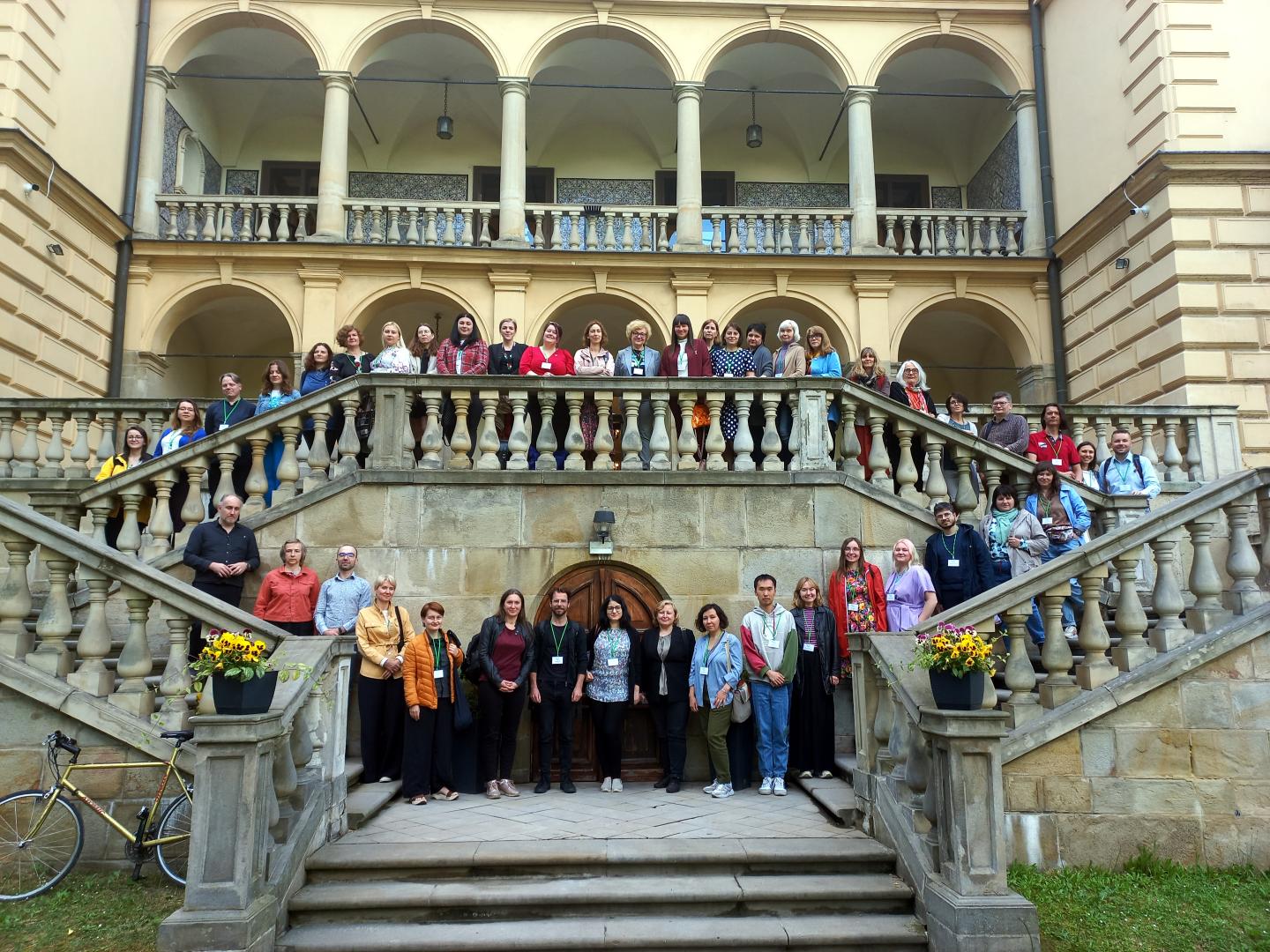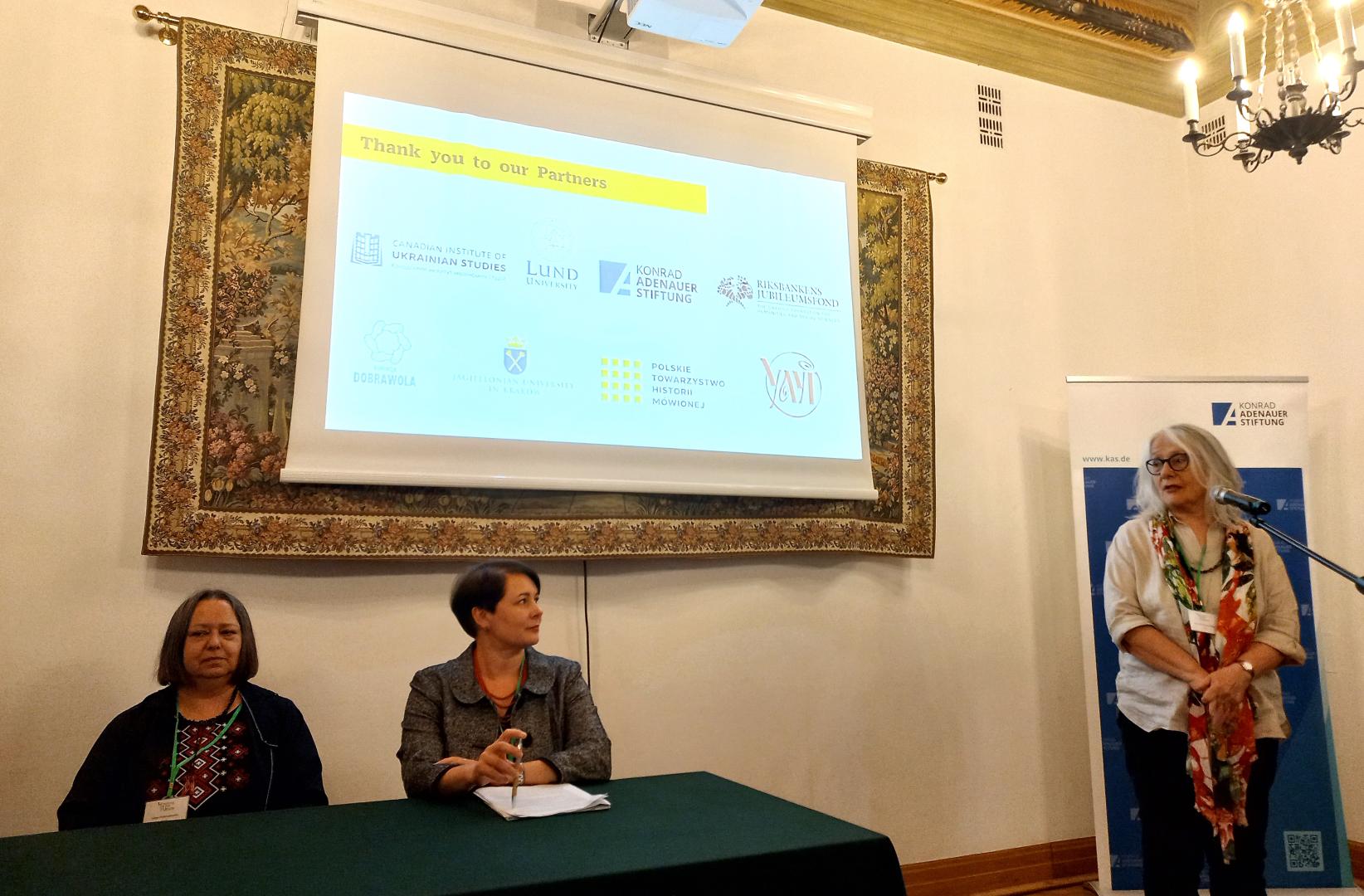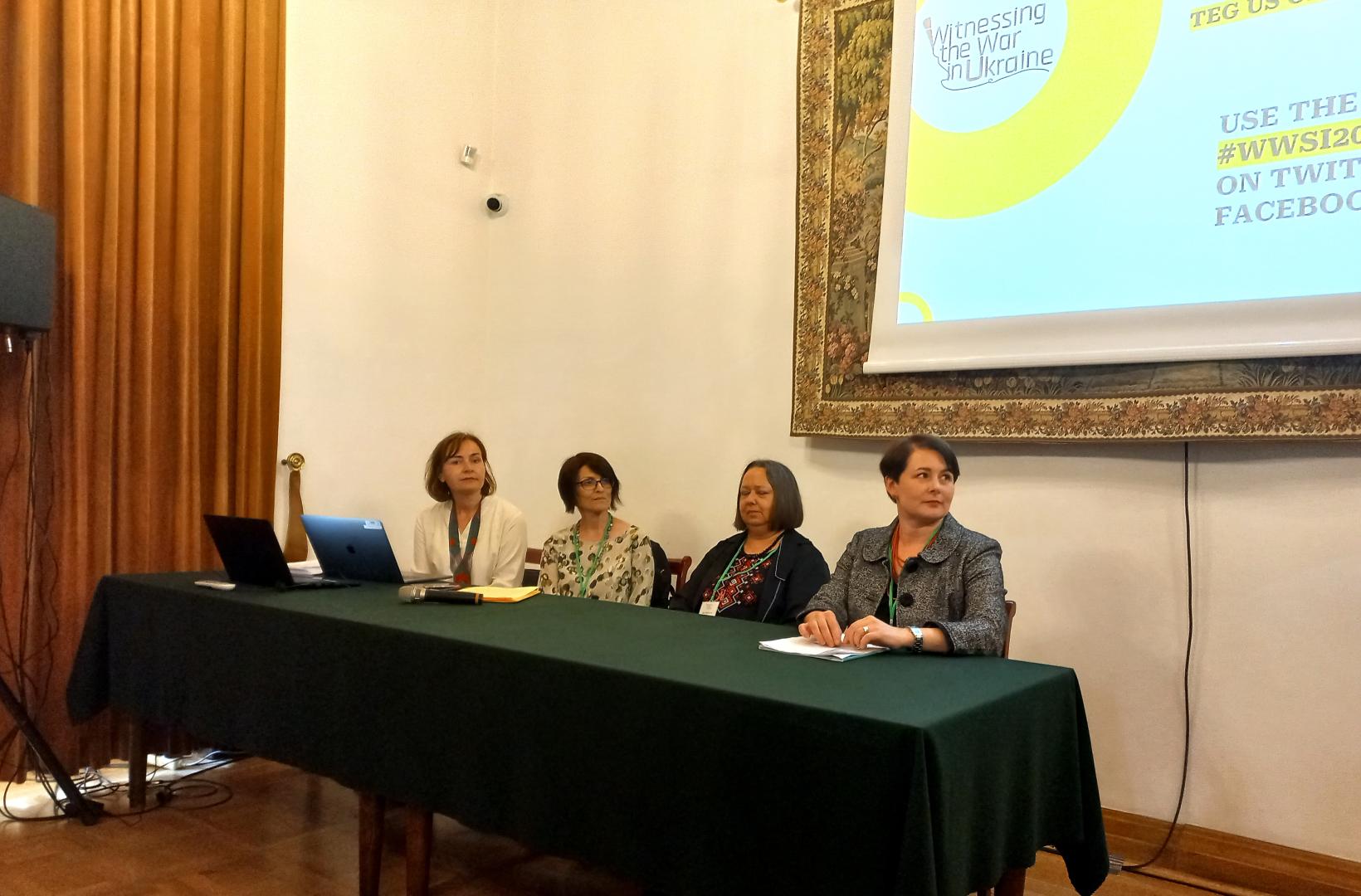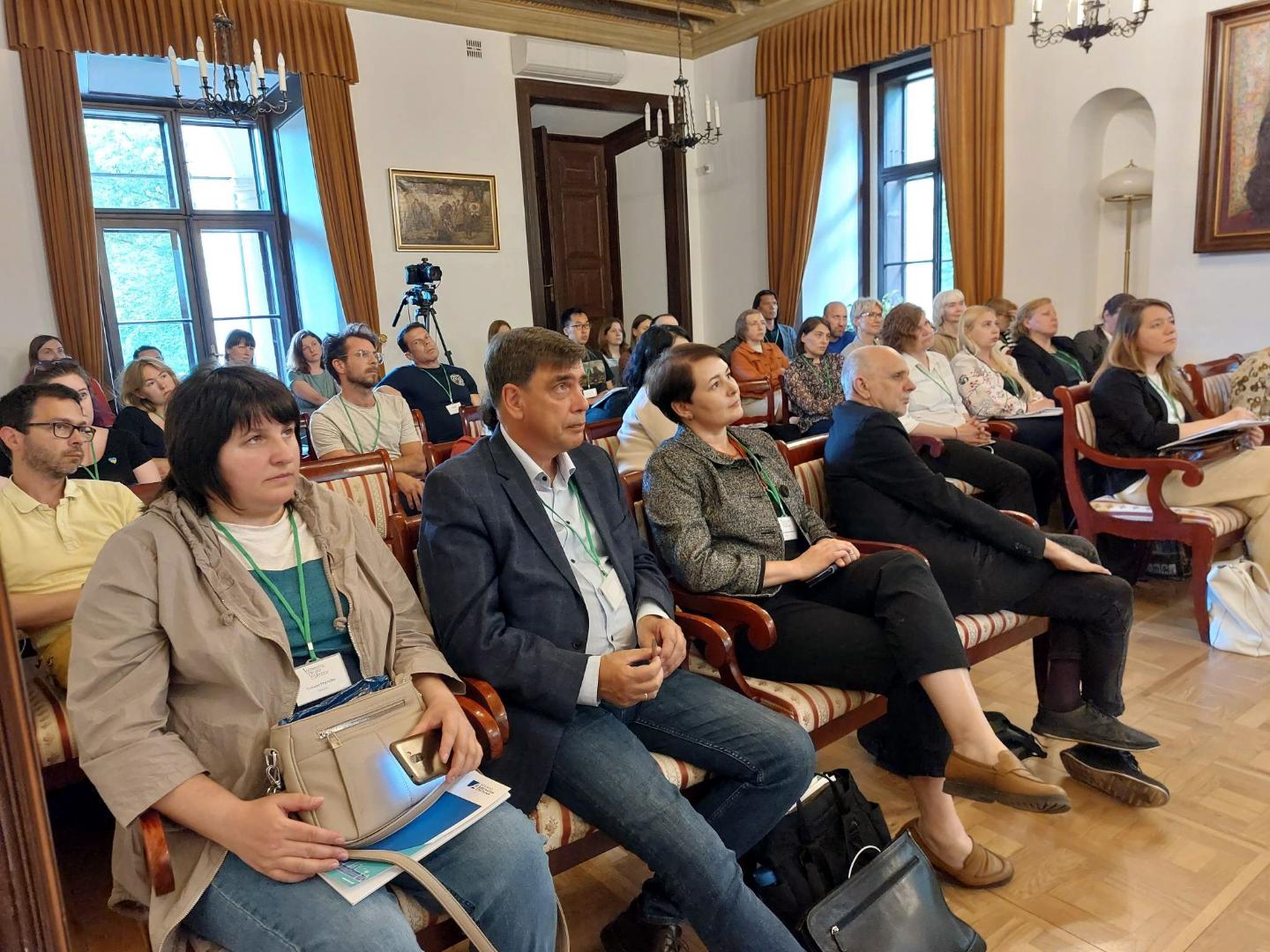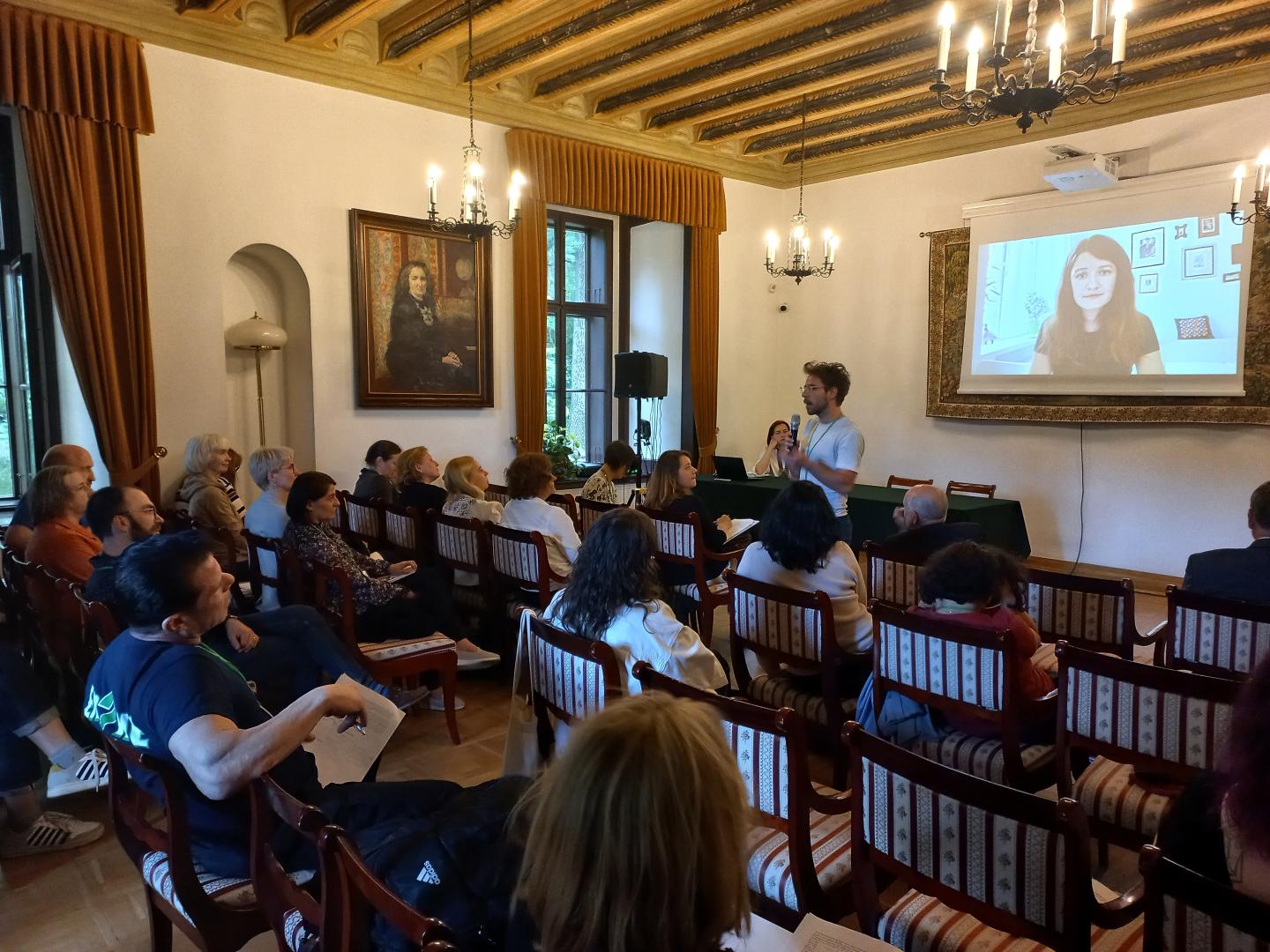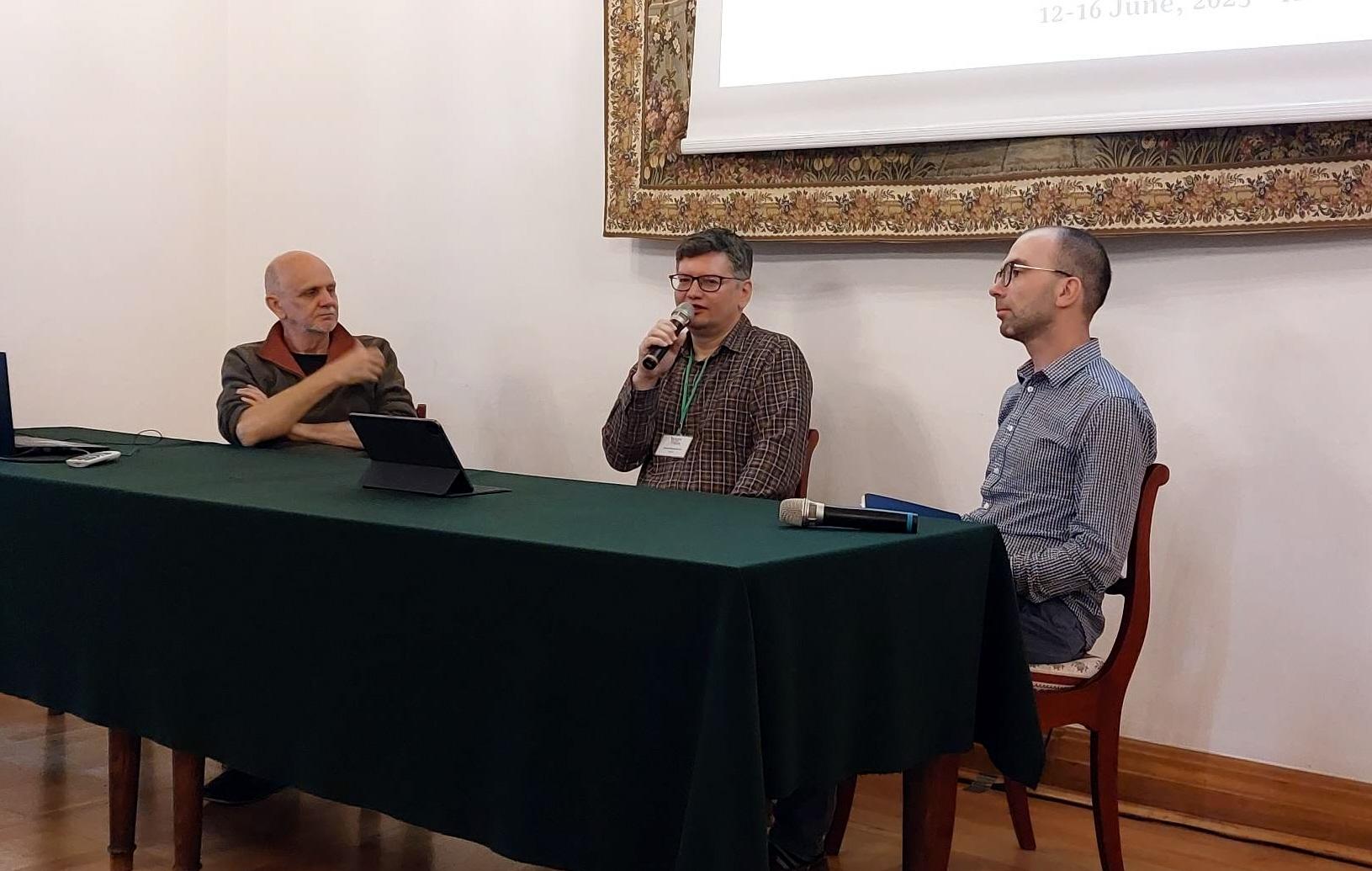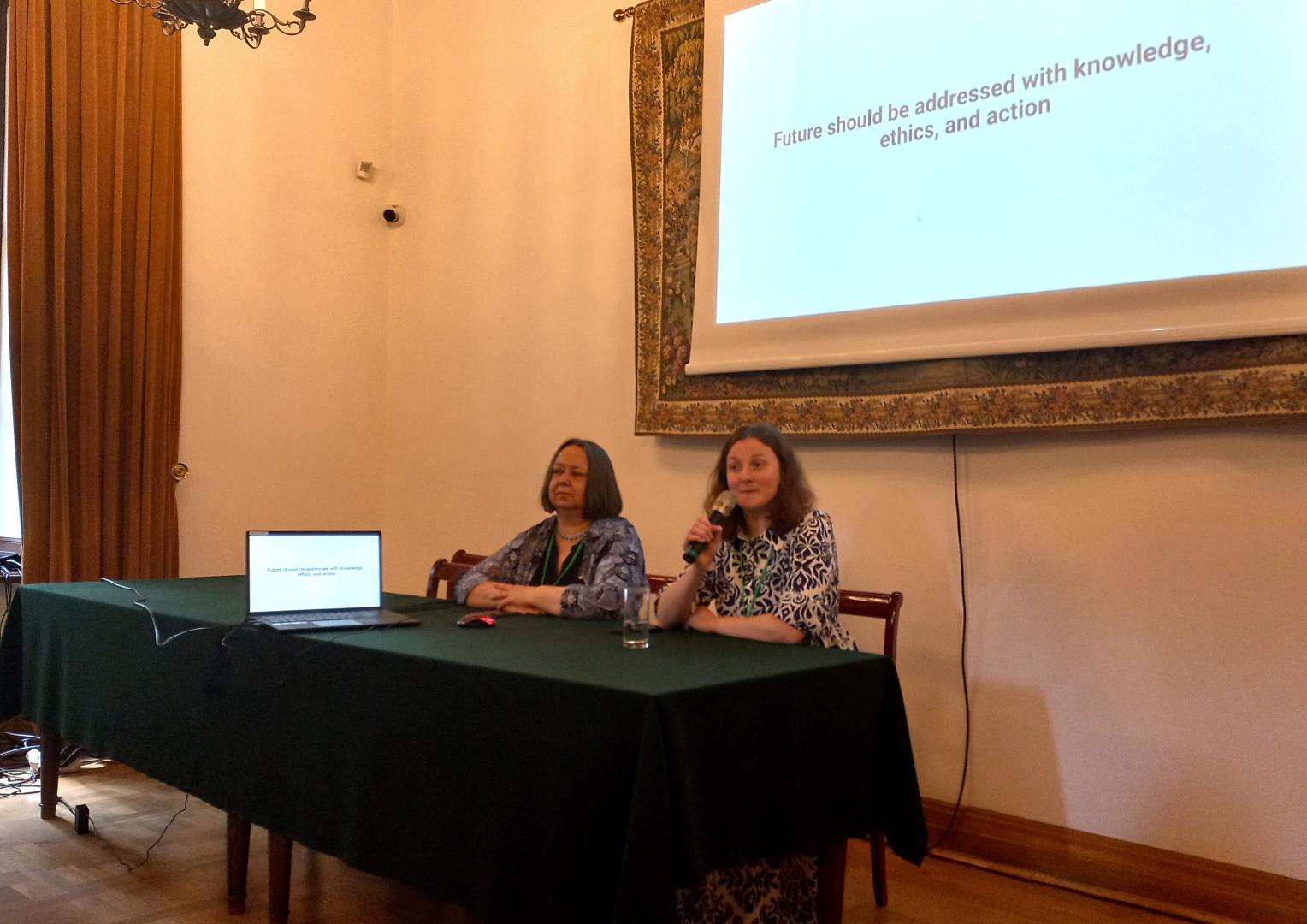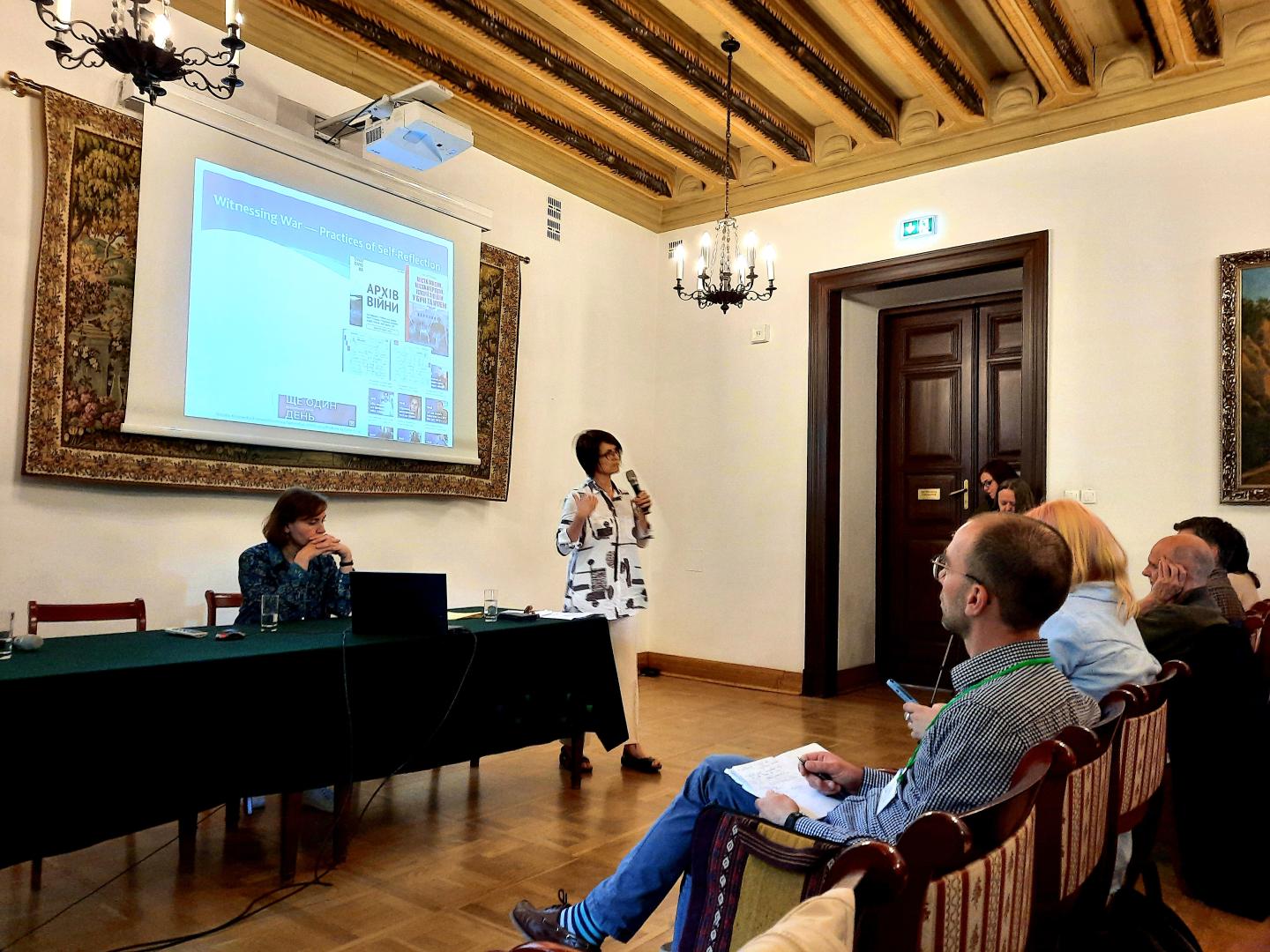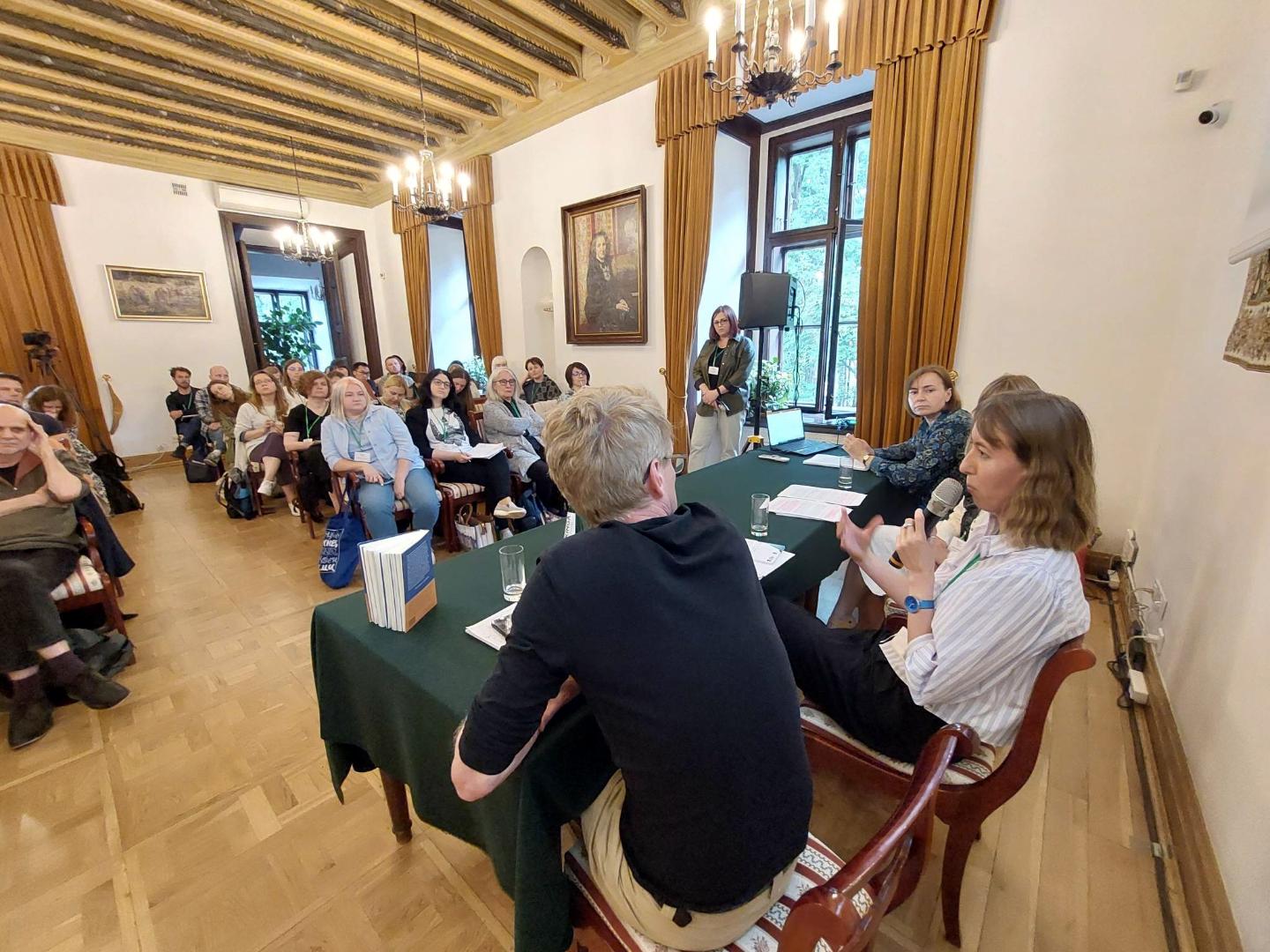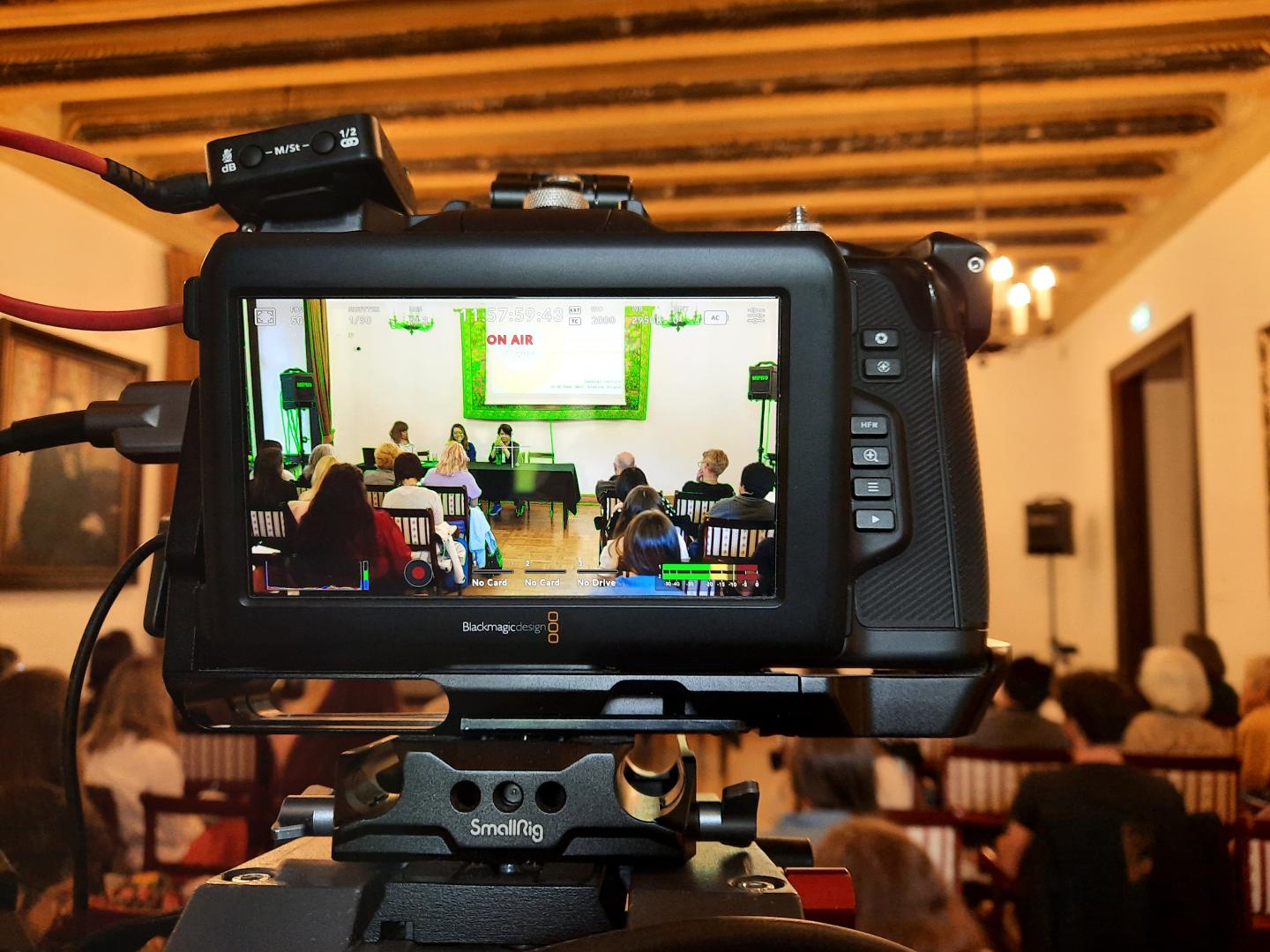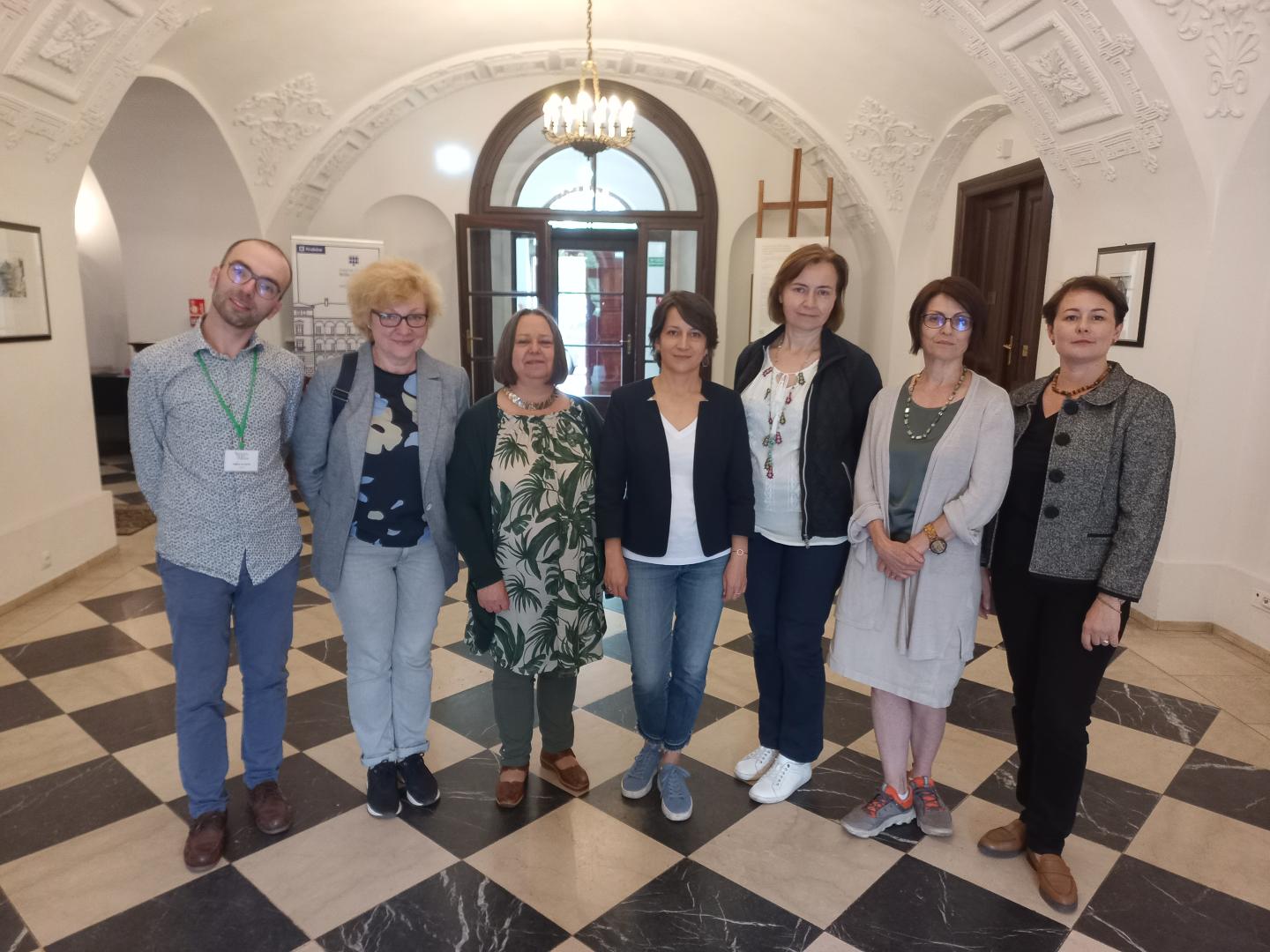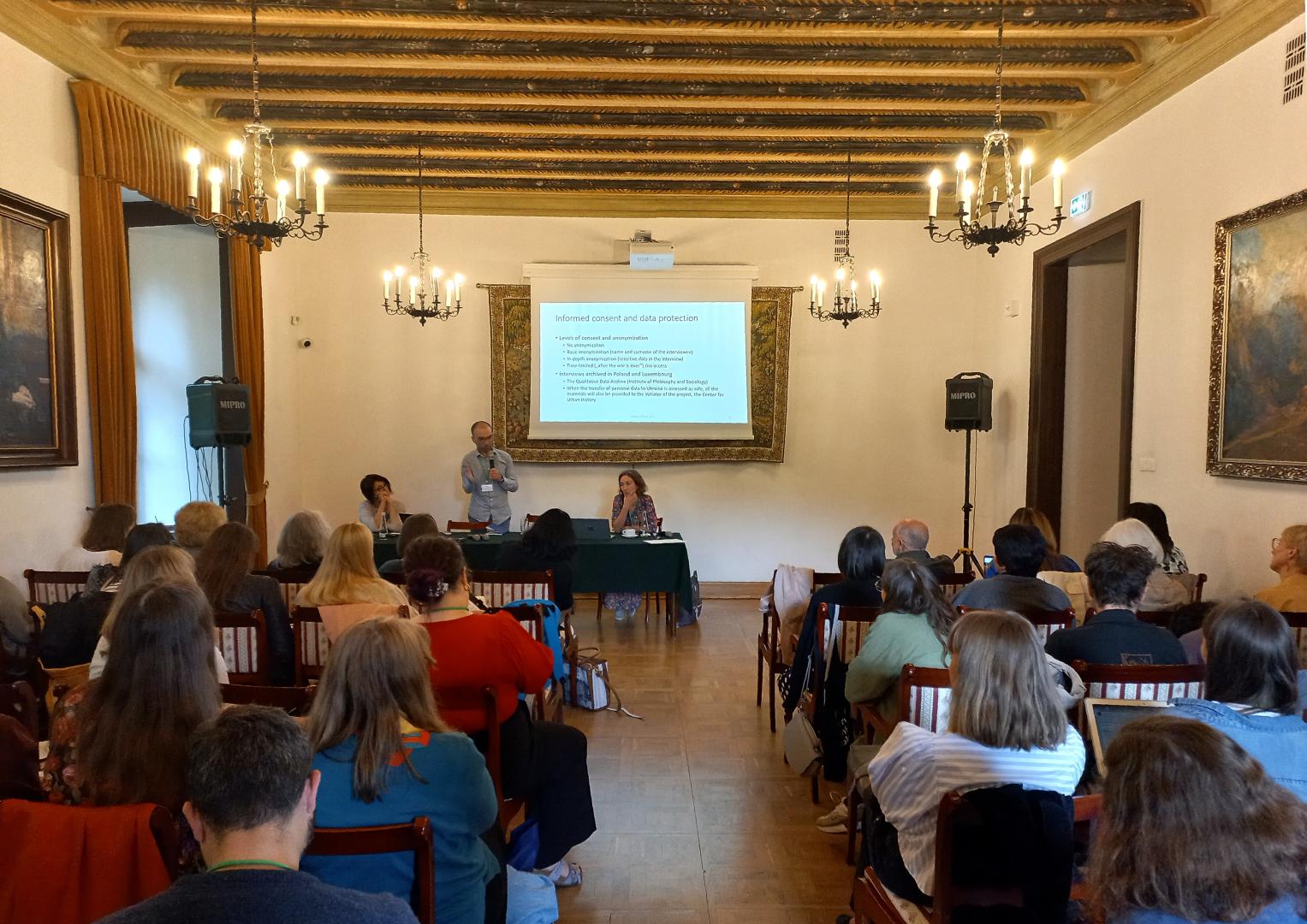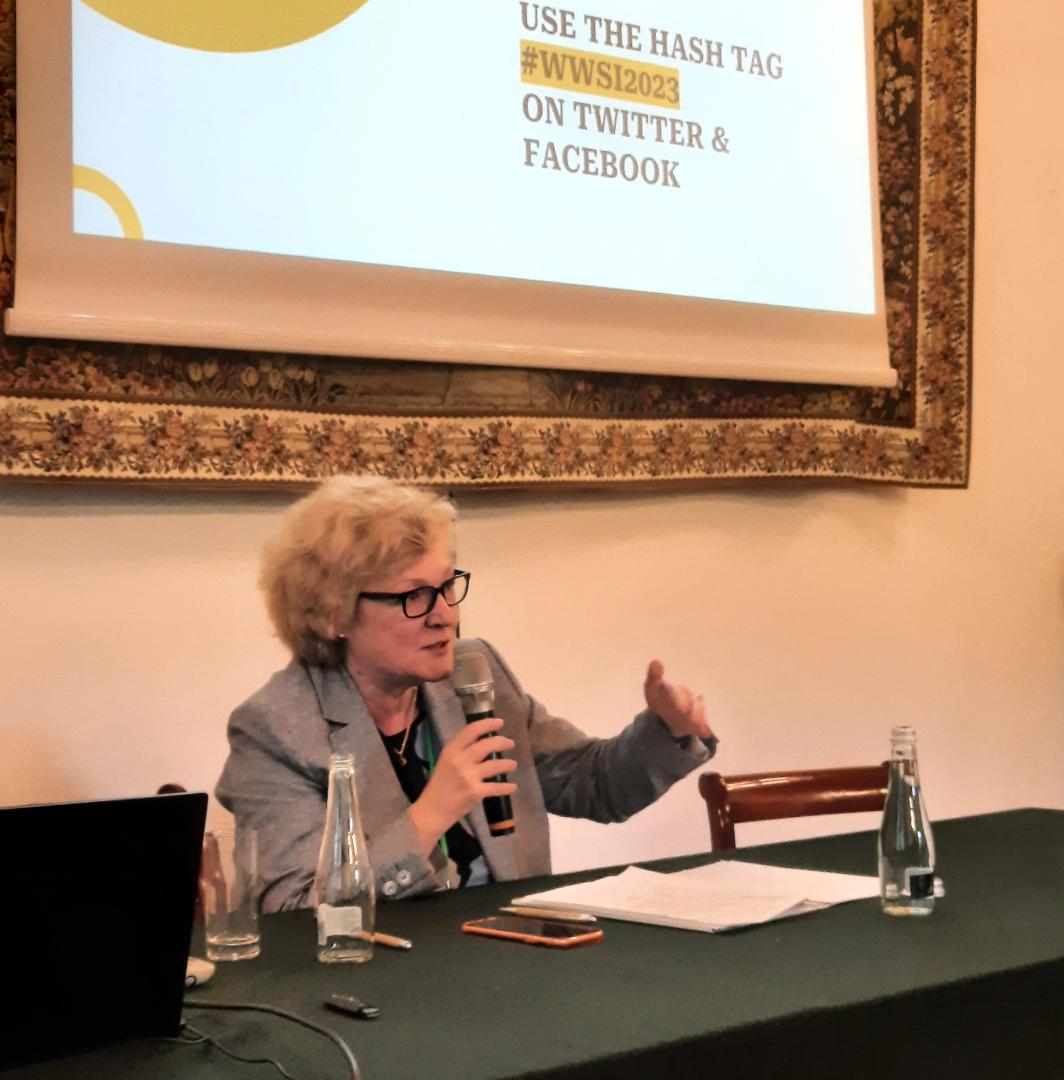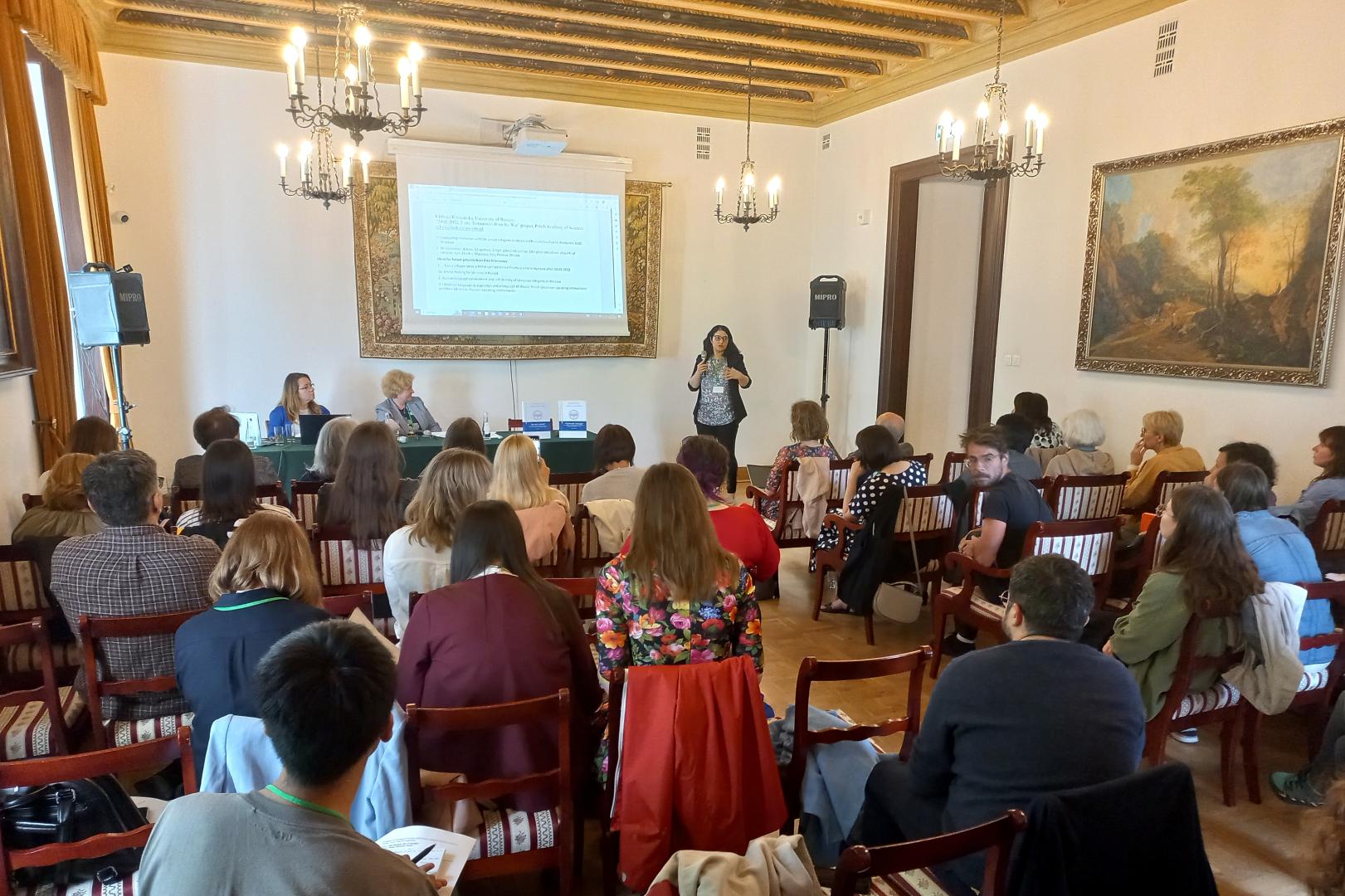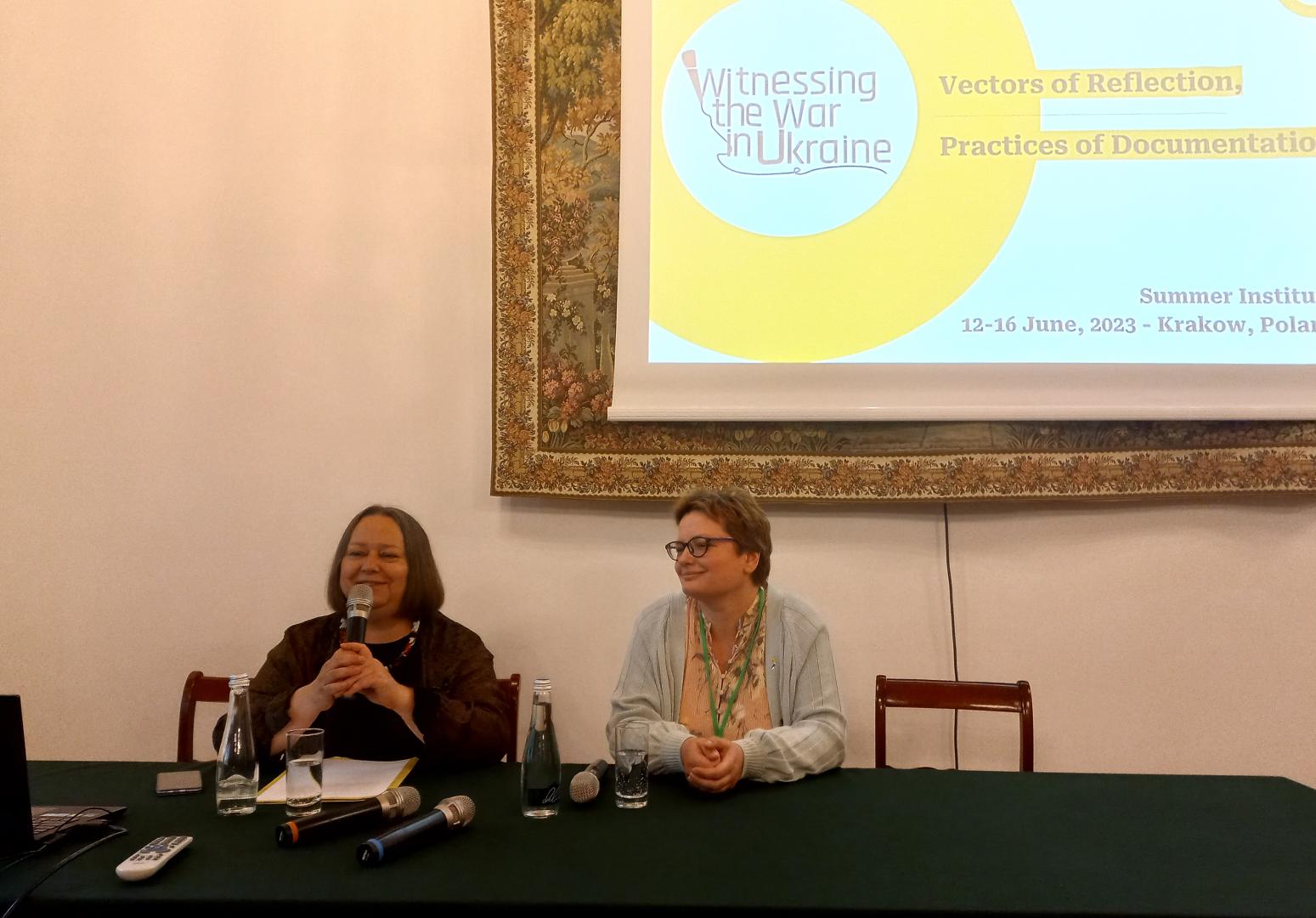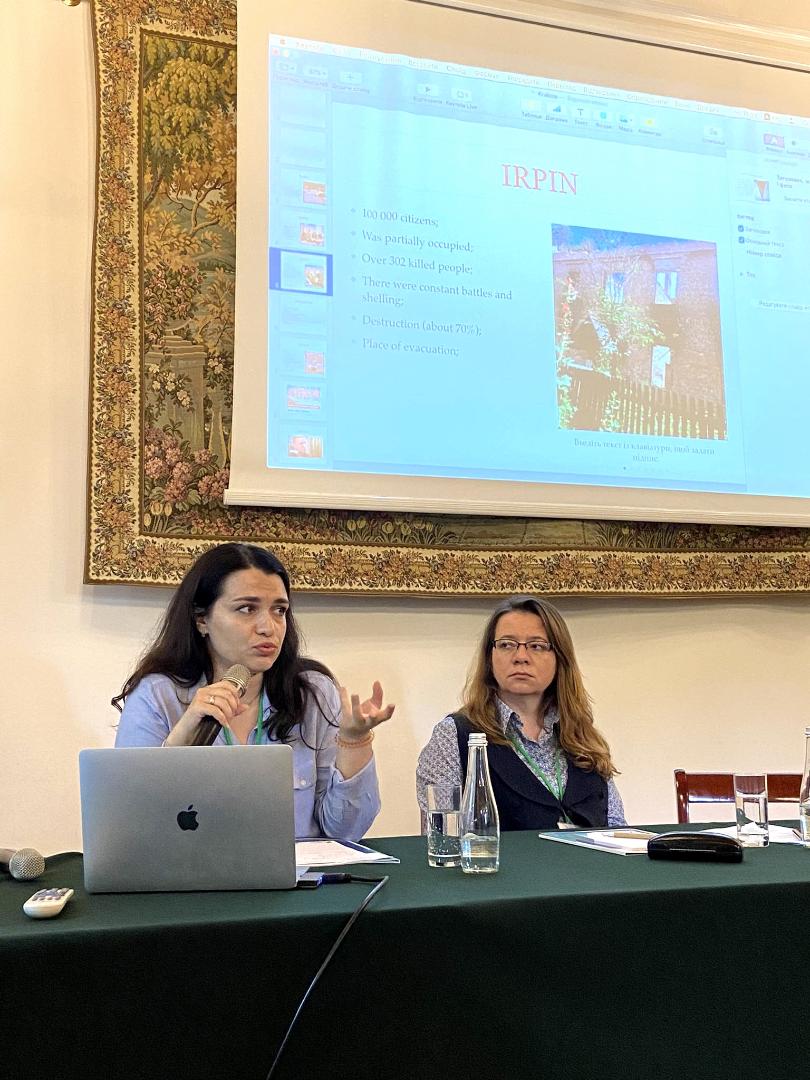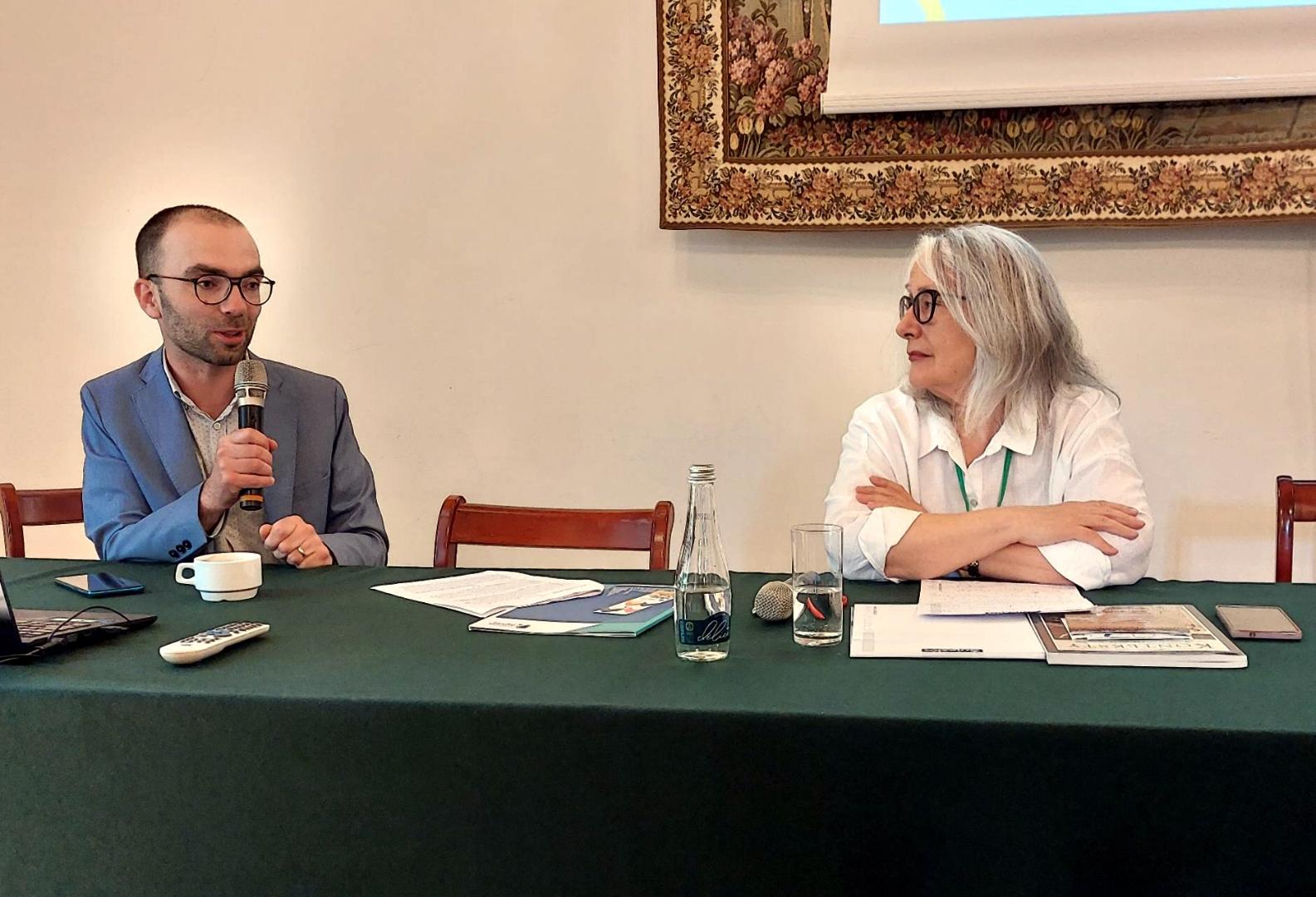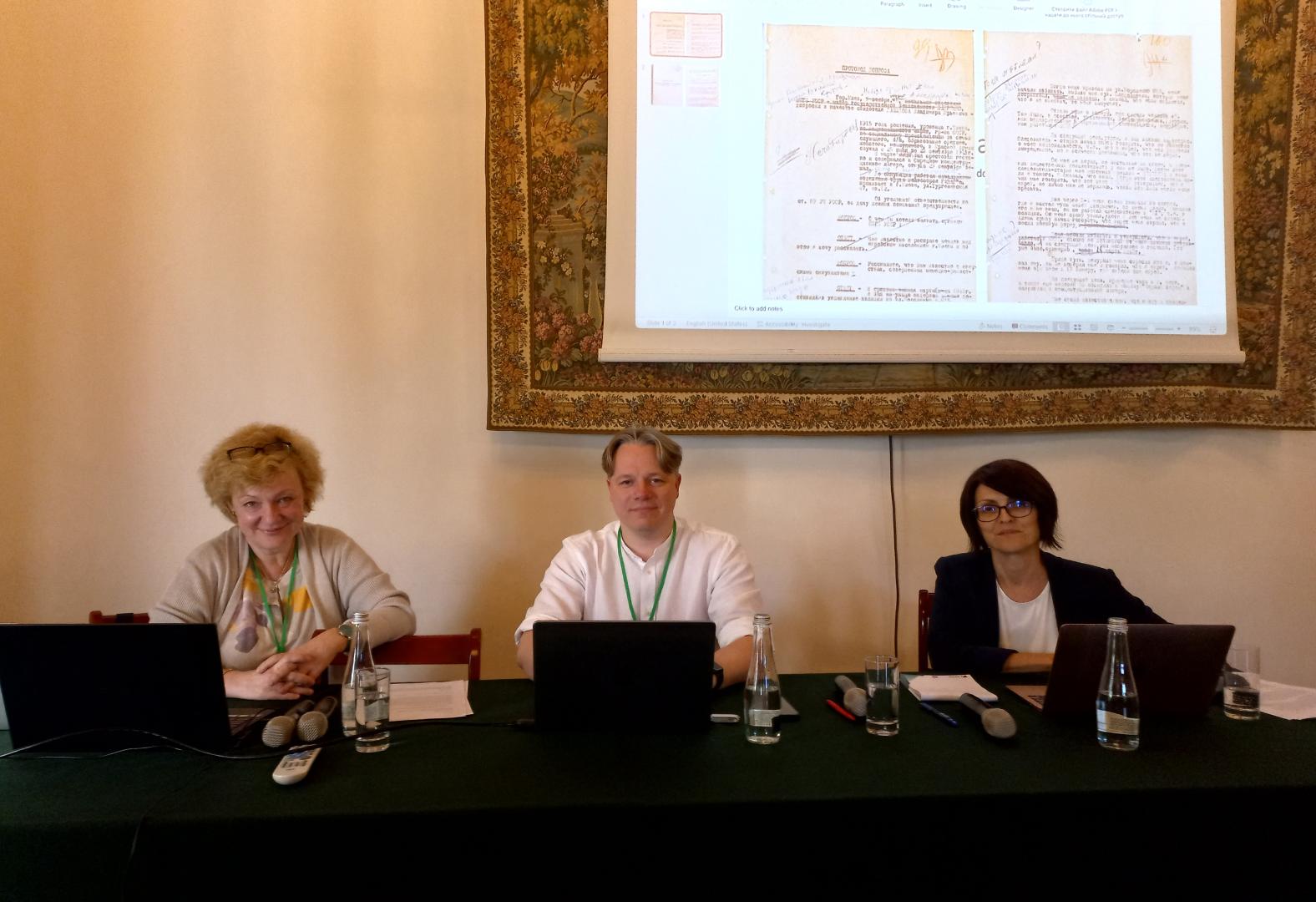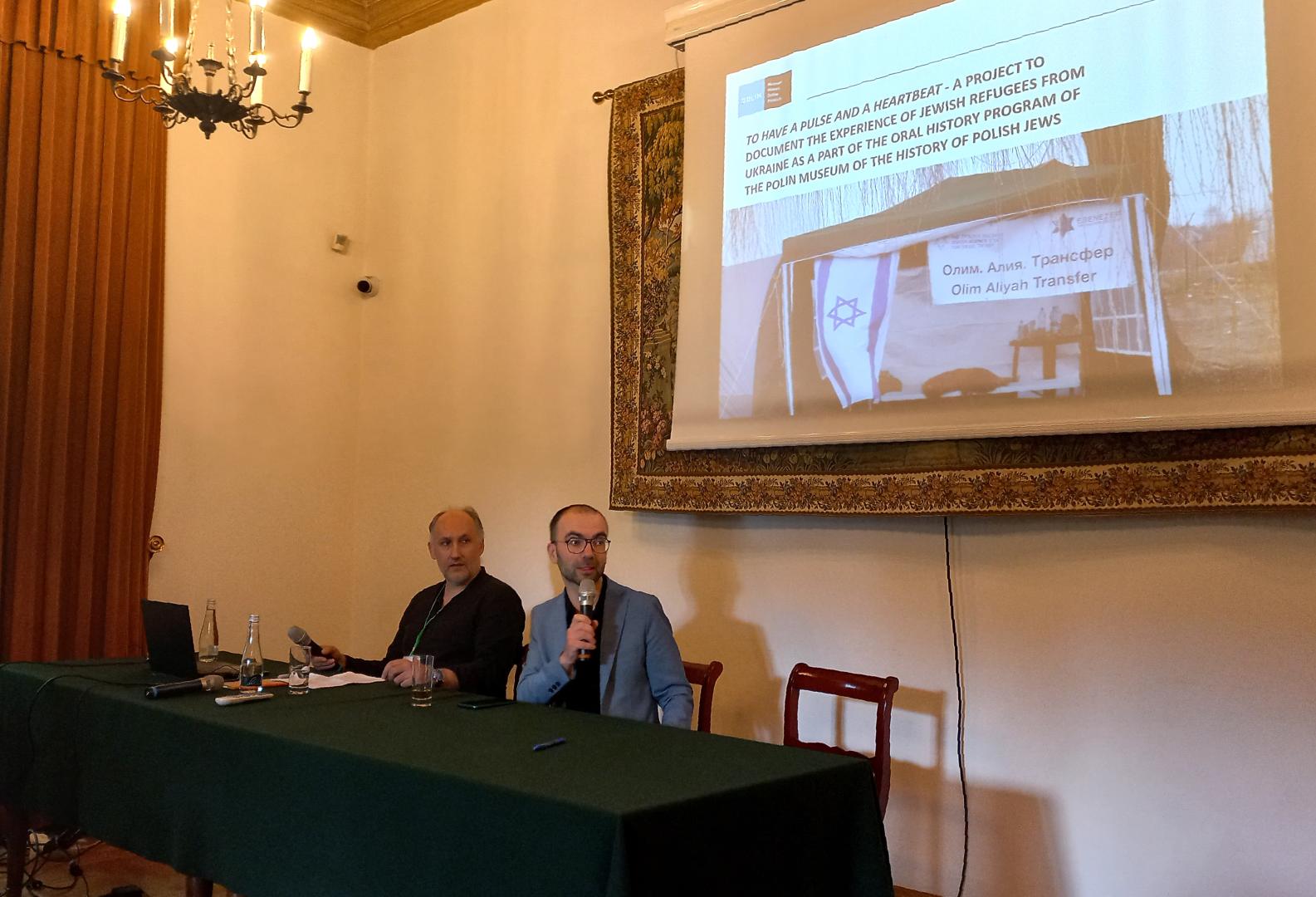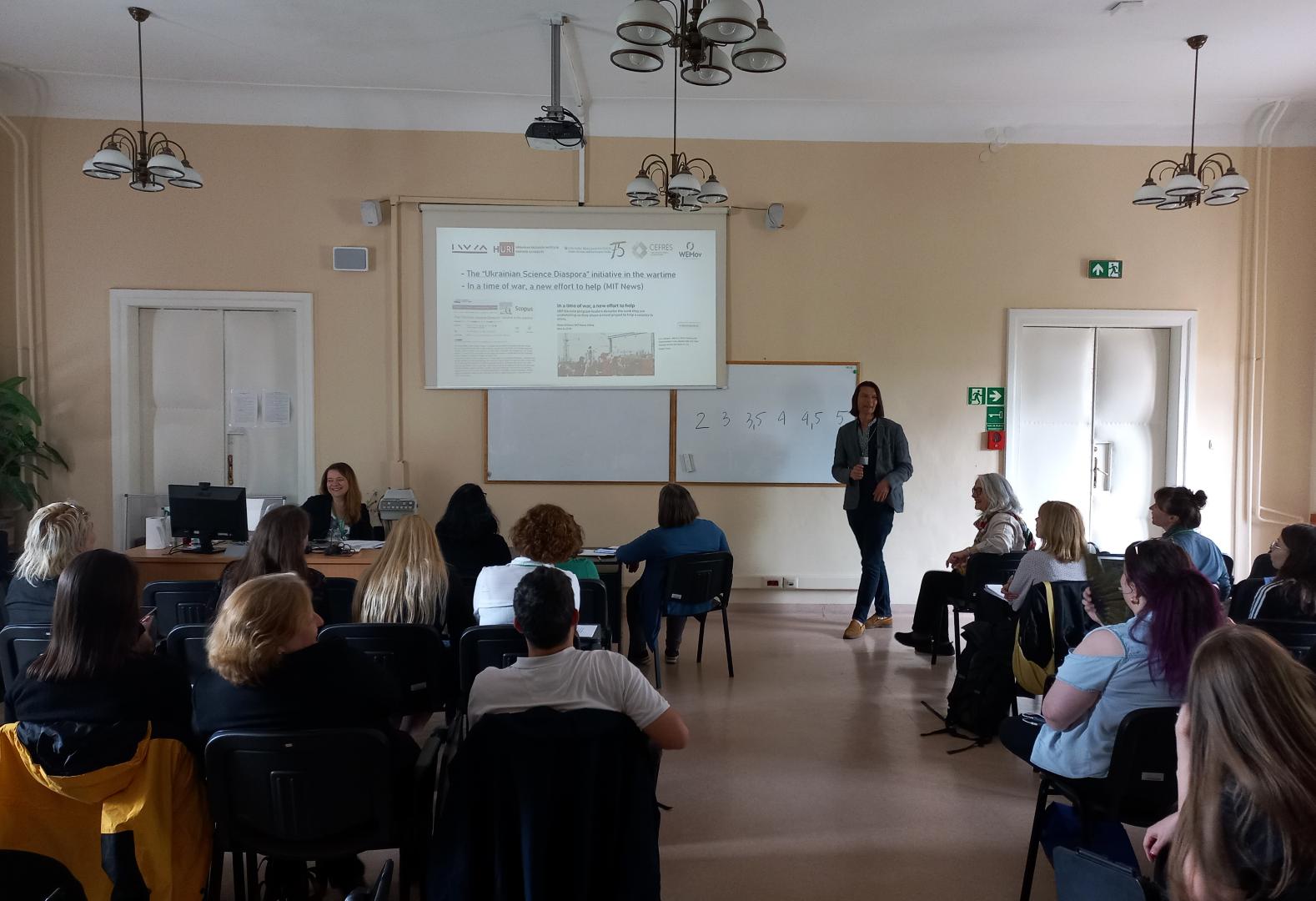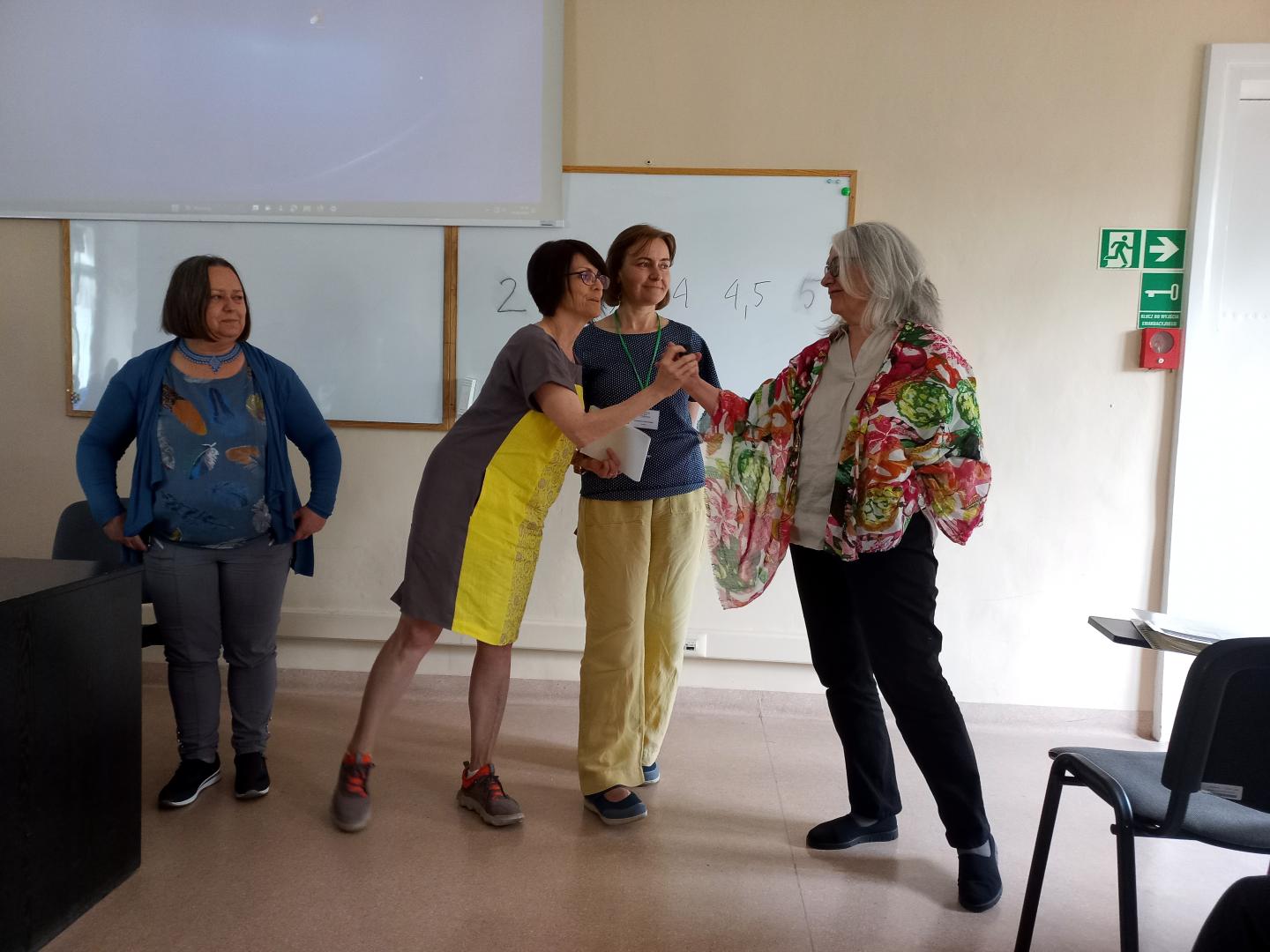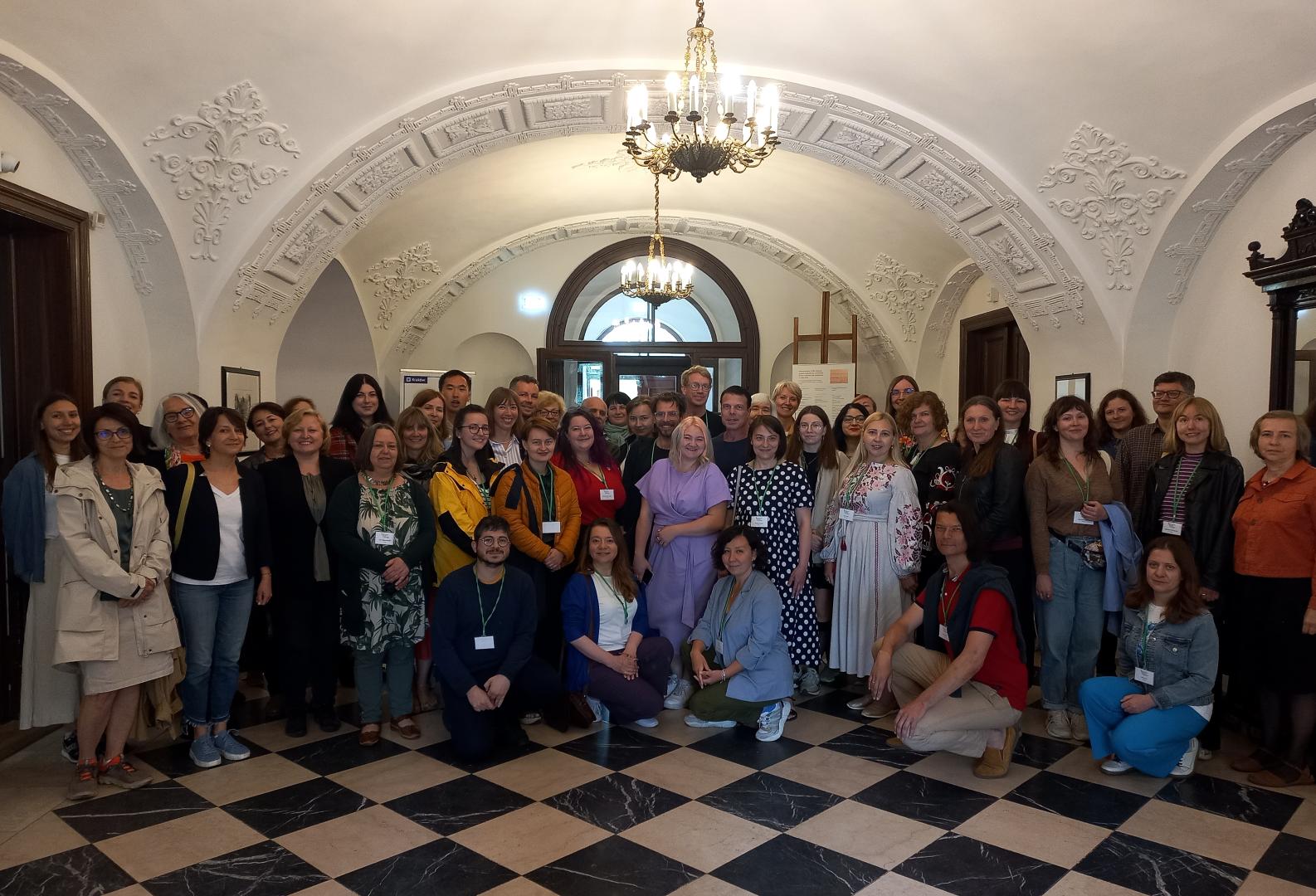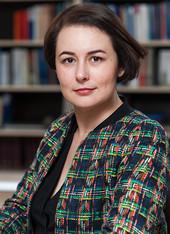In response to the unfolding humanitarian trauma caused by the Russian full scale invasion of Ukraine launched on 24 February 2022, researchers in humanities and social sciences have stepped forward and engaged in active collection of evidence and testimonies. The war in Ukraine is so far the most well-documented modern military conflict, but the process of collecting and processing testimonies faces a number of problems and ethical challenges.
For this reason, representatives of the leading centres for the study of oral history met for the second time at the Summer Institute "Witnessing the War in Ukraine: Vectors of Reflection, Practices of Documentation", which was established last year in Krakow, to discuss the needs and challenges of field research and interviewing in the context of the current war in Ukraine.
Building on the success of the previous Summer Institute 2022, the co-organisers aim formulate key conceptual issues concerning the praxis and ethics of wartime research, as well as expand a transnational research network connecting researchers, activists and creative individuals involved in the collection of testimonies of the war. This networking aims to professionalise testimony collectors and to facilitate the exchange of the academic expertise in oral history, ethnography, interview research and research of witness literature, and share knowledge with a broad and evolving community of practitioners working in various local settings.
More than 50 participants from Ukraine, Poland, Canada, the United Kingdom, the United States, Sweden, Germany, the Czech Republic, and Greece joined the WWSI 2023. Among them were scholars, researchers, civic activists, oral historians, journalists, writers, and other artists who document the Russian-Ukrainian war.
The WWSI 2023 programme included numerous presentations and workshops examining current trends in scholarly and creative reflections on witnessing the war in Ukraine, as well as discussions with artists on witnessing the war and reflecting on its impact via various media, scholarly and creative practices, including film, theater, journalism, ethnography and autoethnography, oral history and storytelling.
During her presentation "Documentations’ possible futures: On long-lasting outcomes of rapid responses", sociologist and researcher at the Center for Urban History in Lviv Dr. Natalia Otrishchenko spoke about the different results of emergency archiving of war experience in a situation of prolonged uncertainty and gave recommendations on how to effectively organise the documentation of the present moment to fulfil the tasks of the future - building communities, establishing justice, conducting analytical research and shared the experience of the international initiative "24.02.22, 5 am. Testimony of War".
Director of the Canadian Institute of Ukrainian Studies prof. Natalia Khanenko-Friesen and anthropologist and associate professor of ethnology at Lund University Eleonora Narvselius presented a joint research programme on "Home-making in displacement among Ukrainians in Poland and Canada after February 2022: collective memories, historical narratives, transnational heritage", which plans to study personal and collective memories of home among contemporary Ukrainian war refugees, as well as their "homes" in new environments, in order to interpret some common past historical triggers and (post)colonial histories of other migration waves.
Anna Wylegała, Institute of Philosophy and Sociology, Polish Academy of Sciences in Warsaw, and Marcin Jarząbek, Institute of History, Jagiellonian University in Krakow, during the seminar "Recording Testimonies from the War – Methodological, Ethical, and Legal Solutions", spoke about their participation in the international project "24.02.2022, 5 am: Testimony of War" (https://swiadectwawojny2022.org/en/), which has been implemented by the Institute of Philosophy and Sociology of the Polish Academy of Sciences since March 2022.
Ukrainian journalist from Irpin Yevhenia Podobna held a workshop on "Documenting the Genocide: The Experience of Investigating War Crimes in Bucha, Irpin, and Okhtyrka", setting an example of truly professional, ethical and responsible documentation of war crimes. With extensive pre-war experience of recording testimonies and later war reporting, Yevhenia Podobna writes books and makes documentaries based on oral history. In her highly practical presentation, the journalist shared tips on step-by-step research planning, source sourcing and verification, emphasizing responsibility and respect for witnesses, and addressing the challenges of striking a balance when testifying about genocide.
A special feature of this year's Summer Institute was its strong cultural and artistic component. Author readings of the plays “Peace and tranquility” and “Squirrel Man», screenings of the films «Earth Blue As an Orange» and «Bad Roads» were followed by discussions with the authors of these works: Ukrainian filmmakers Iryna Tsilyk ("What documentary films do in the wartime") and Natalka Vorozhbyt, playwright of the Lviv Puppet Theatre Andriy Bondarenko and his translator John Farndon, and journalist and writer Tamara Duda, known as Horikha Zernya ("Living in, writing out: is it possible to write about the war while living in the midst of the war? Fictional aspects of actual lives against Ukraine-Russia war background").
Despite the diversity of experience and artistic techniques of documenting the war in cinema, theatre, and literature, as well as the powerful potential of the material collected in the first years of the war, the artists spoke about the impossibility of immediate creative reflection on current events due to the deep trauma and the concentration of all efforts on the urgent needs to achieve victory in the war. They also talked about the terrible traumas of Ukrainians during the extermination war, the dangerous public mood of exhaustion and addiction to the war against the background of its prolongation, and the technical and ethical problems of documenting war crimes.
Discussion "Testimony and Trauma in Ukrainian Theatre and Literature after Euromaidan 2014. Ethical and Aesthetic Challenges" was dedicated to the art of testimony, an innovative interdisciplinary field that engages in practical research on testimony, trauma, social change and political activism. It was attended by professor Johanna Lindbladh, a Swedish Slavic scholar at Lund University, Ukrainian theatre scholar Yelyzaveta Oliynyk, and Mikael Nydahl, translator, publisher and founder of Ariel förlag, Sweden.
The programme also included 3 screenings and discussions of oral history documentaries created by the founders of WWSI2023, which tell about tragic events of different historical periods.
For example, Grażyna Kubica-Heller, a professor at the Institute of Sociology at the Jagiellonian University, and Marcin Jarząbek, the Polish Association for Oral History, presented their own 2012 documentary film entitled "The railway station Krasne-Busk. Stories of displaced women". While working on the project, the authors sought to give a voice to women who bore the tragic burden of political decisions on forced resettlement after World War II.
Alina Doboszewska, President of the Dobra Wola Foundation in Krakow and a member of the Polish Oral History Association, screened the documentary “And the War Came to Us”, made in collaboration with director Krzysztof Krzyżanowski in 2021. The film, which tells the story of the beginning of the Russian-Ukrainian war, is based on oral history interviews with the widows of fallen soldiers, as well as authentic materials from the front line.
Finally, the head of the Ukrainian Association of Oral History, professor Gelinada Grinchenko, presented her own documentary oral history project, created with the support of the Kharkiv office of the FCA in Ukraine. A series of documentary episodes, united by the common title "On Kharkiv and Ourselves: the City's Fates and Experiences in Oral Histories of Its Inhabitants" tells the story of the Nazi occupation of Kharkiv in 1941-1943 and is based on oral histories of the city's residents who survived the occupation as children.
From the presentation by senior oral history specialist Józef Markiewicz, the participants learned about a project documenting the experiences of Jewish refugees from the current war called "To have a pulse and a heartbeat - A Project from Ukraine" by the POLIN Museum of the History of Polish Jews. This project is the result of a revision of POLIN's oral history programme, which until now has been based mainly on stories about past events - and less often on the present. Mr. Markiewicz presented new interviews from the POLIN Museum's oral history archive collection, which focus on the Jewish community's response to the escalation of the Russian-Ukrainian war, aid and solidarity, and reflections on the similarities between contemporary respondents' accounts of traumatic experiences and those of Holocaust survivors.
During the session "From War Testimony to Archives: Reflection on Documentation, Preservation and Interpretation" with Andrii Kohut, Director of the Sectoral State Archive of the Ukrainian Security Service, the founders of the Institute, Gelinada Grinchenko and Natalia Khanenko-Friesen, discussed the problematic nature of using the KGB archives for contemporary historical research. Although the archives contain a lot of personal written evidence, such as diaries and photographs, it should be remembered that the collection of testimonies served operational (compiling lists of unreliable people, persecution) or propaganda purposes, so manipulation and editing of data to suit the needs of the "official version of history" was commonplace. Current and potential future archiving practices and wartime challenges, including the partial loss of archives due to the Russian occupation of Ukrainian territories, were also discussed.
The participants of WWSI 2023 also had a unique opportunity to present their current or planned projects during two sessions and receive immediate feedback from mentors, discuss with other participants, and establish future partnerships.
We invite everyone interested in the WWSI 2023 topic to watch the broadcasts of all events (working language - English) within the agenda via the relevant links.
Photos and impressions of the event can be found on social media under the hashtag #WWSI2023.



